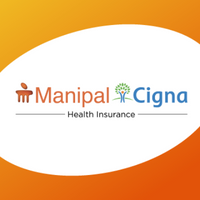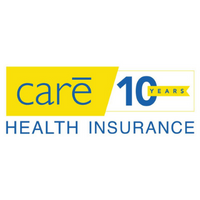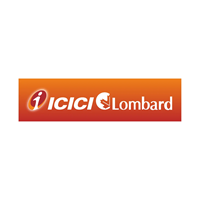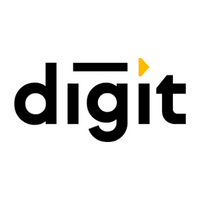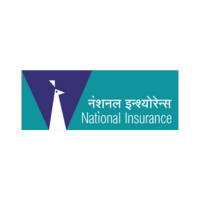Compare Health Insurance Plans & Secure Your Family’s Future
Secure your family's future with health insurance—peace of mind at an affordable price. Act now to protect what matters most; don’t leave their tomorrow to chance!


Talk to IRDAI-certified experts
Choosing the right insurance policy can be challenging, whether it’s for life, health, car, or term insurance. To help you make an informed decision, our IRDAI-certified insurance experts provide professional guidance based on your needs and financial goals.
With expert support, you can:
- Review your existing insurance policy for better clarity.
- Understand the features, inclusions, and exclusions of different plans.
- Compare policies from leading insurers in India.
Our Health insurance Partners
What is a health insurance policy?
In straightforward terms, purchasing health insurance provides financial protection up to a specific limit for medical costs you might face in a year. It includes coverage for both emergency and scheduled expenses, such as hospital stays, outpatient treatments, surgeries, pre- and post-hospitalization care, and ambulance fees. Thus, choosing the right health insurance plan helps you avoid unexpected financial strain during medical emergencies. Additionally, it offers tax benefits under Section 80D of the Income Tax Act, 1961, on the premiums paid to the insurance provider.
Health insurance is a contract between you and an insurance company where the insurer covers your medical expenses in exchange for a premium. It provides coverage for:
- Hospitalization costs
- Doctor consultation fees
- Pre- and post-hospitalization expenses
- Medicines and diagnostic tests
- Surgeries and emergency treatments
Key benefits of having a health plan
Financial Protection: Covers medical expenses like hospitalization, surgeries, day-care treatments, and ambulance charges, reducing financial strain during emergencies.
Comprehensive Coverage: Includes planned and emergency treatments, pre- and post-hospitalization costs, ensuring broad support for healthcare needs.
Tax Benefits: Premiums paid qualify for tax deductions under Section 80D of the Income Tax Act, 1961, lowering your taxable income.
Peace of Mind: Provides security by mitigating the risk of high medical costs, allowing focus on recovery rather than finances.
Access to Quality Healthcare: Enables treatment at network hospitals with cashless facilities, ensuring timely and quality medical care.
Coverage for Critical Illnesses: Many plans offer specific coverage for serious conditions like cancer or heart disease, often with lump-sum payouts.
Preventive Care: Some plans include wellness benefits like health check-ups, encouraging early detection and management of health issues.
Types of Health Insurance Plans in India
Choosing the right plan depends on your needs. Here are the most popular options:
Individual Health Insurance: Covers medical expenses for a single person. Ideal for individuals who want personal coverage..
Family Floater Health Insurance: A single sum insured covers the entire family (spouse, children, parents). Cost-effective compared to individual policies..
Senior Citizen Health Insurance: esigned for people aged 60+. Covers age-related illnesses, with higher coverage options..
Critical Illness Insurance: Provides a lump-sum payout if diagnosed with serious illnesses like cancer, stroke, or kidney failure..
Maternity Health Insurance: Covers maternity-related expenses, newborn care, and delivery costs..
Group/Corporate Health Insurance: Provided by employers to employees. Limited coverage but useful as a basic layer of protection..
How to Choose the Best Health Insurance Plan?
With so many options, here’s what you should check before buying:
Coverage vs Premium: Choose plans with maximum coverage at an affordable premium.
Network Hospitals: Ensure cashless treatment at reputed hospitals near you.
Waiting Periods: Check waiting time for pre-existing diseases and maternity.
Exclusions: Understand what is not covered in the policy.
Claim Settlement Ratio (CSR): Higher CSR means better chances of smooth claim approval.
Health Insurance buying checklist
Waiting Period
You should buy a health insurance policy with a minimal waiting period. The lower is the waiting period, the sooner you will be able to avail coverage. You should go through the policy terms & conditions carefully and check the waiting period before buying a policy.
Co-payment
You should opt for a health insurance plan with no co-payment. Without co-payment, you will not have to make any out-of-pocket expenses for each claim. You can check the policy documents to know about any applicable co-payment before buying the policy.
Preventive Health Check-up
You must choose a health insurance plan that offers free preventive health check-up facilities every year. With this benefit, you don’t need to pay for annual medical examinations. You can check the policy benefits while buying to know about preventive health check-up facilities.
Grace Period
You should buy a health insurance policy that offers the maximum grace period. A bigger grace period gives you more time to renew your policy after the due date has passed. You can read the policy wordings to find the exact grace period available under the policy.
Restore Benefits
You should purchase a health insurance plan that offers 100% restore benefits. With restore benefit, your sum insured amount will be fully restored as soon as it gets exhausted after a claim. You can check the policy documents to know if the restore benefit is available
No Claim Bonus
You should pick a health insurance plan with the maximum No Claim Bonus/Cumulative Bonus for every claim-free year. The higher is your No Claim Bonus, the higher will be the increase in your sum insured. You must read the policy documents before buying to know about NCB
Sub-limits
You should buy a health insurance plan that comes with no sub-limits. Without sub-limits, you will be free to raise a claim up to the sum insured amount. You can go through the policy wordings to find out about any applicable sub-limits under the health plan.
Network Hospitals
You should choose a health insurance company with the largest network of hospitals in India. The more is the number of network hospitals, the more likely you are to avail cashless treatment in your locality. You can check the network hospitals’ list before buying a health policy.
